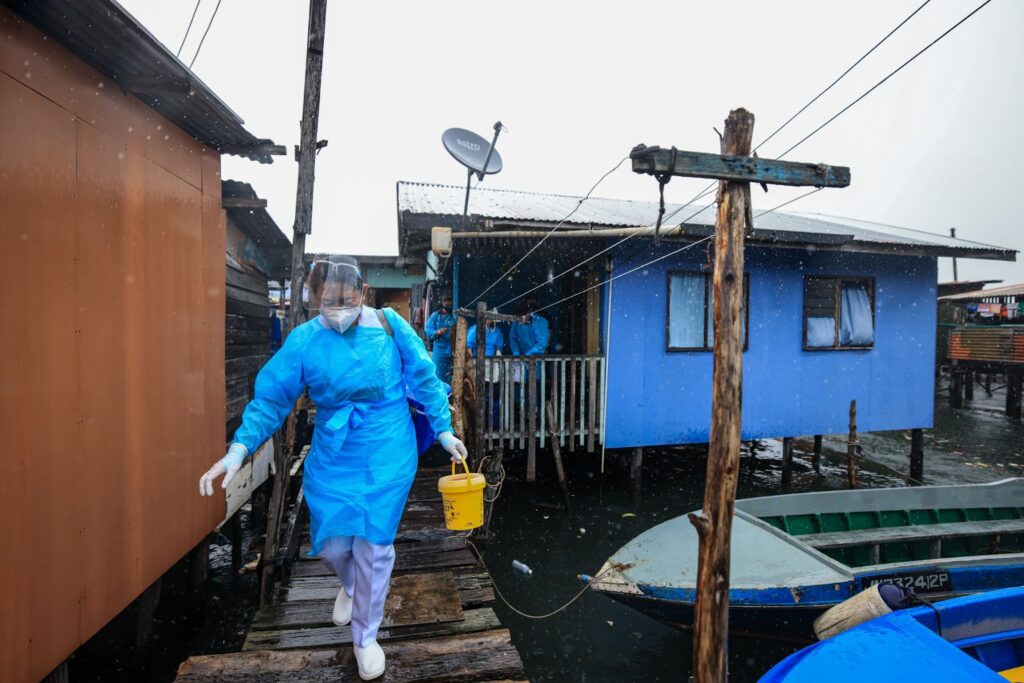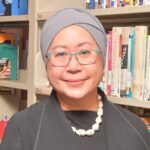It has been almost two years since the start of the Covid-19 pandemic. Quite apart from the horrors that the virus has unleashed across the planet, this seemingly endless event has shown the best and the worst of our collective character.
Health care workers have sacrificed their lives to save others. The medical profession has worked itself to exhaustion to uphold the oaths that underpin its workings. Neighbour has helped neighbour. The miracles of science have saved many lives through the rapid development of vaccines.
Here in Malaysia, since the start of this pandemic, and during the rollout of our national vaccination programme, which, is worth noting, is amongst the fastest and most effective in the world, there is one phrase that has been repeated: “No one is safe until everyone is safe”.
The internalisation of this mantra is what has led to 78 per cent of the population being fully vaccinated in a gargantuan and highly successful vaccination campaign.
We chant this mantra to win over vaccine-hesitant groups. We chant this mantra to drive public understanding that migrants and refugees, the stateless, and the undocumented must be regarded as part of “everyone”.
While we have adopted this mantra locally, the global battle for vaccine equity is playing out in frightening ways, which have an impact on the success of vaccine programmes being implemented across the planet, and the extent to which everyone is, or rather is not, safe.
Despite repeated warnings from scientists, the World Health Organization (WHO), and United Nations Secretary-General António Guterres, it isn’t inaccurate to describe our current global vaccine landscape as being littered with signs of pervasive, and ultimately short-sighted, vaccine nationalism, hoarding, and what sadly manifests as fear-filled selfishness, combined with an arrogant dismissal of what science is telling us.
About 73 per cent of shots that have gone into arms worldwide have been administered in high- and upper-middle-income countries. Only 0.8 per cent of doses have been administered in low-income countries.
The result of this staggering level of inequity is clear — and is being repeated. At the start of the year, India and Delta; and at the end of the year, South Africa and Omicron. Both variants very quickly dominated globally, and we all paid the price.
Low levels of vaccination enable higher levels of mutation. The simplest solution to address this vaccine procurement gap is to produce more doses, but that still will not work if global power dynamics and poorly applied social equity principles remain the same.
Somewhat unbelievably, the European Union has over 200 million unused doses, while the United States has over 100 million unused and wasted at least 15 million doses between March and September.
Where new vaccines usually take up to 15 years to develop, Covid-19 vaccines were made available after only 307 days because scientists collaborated using science that was already developed.
This was extraordinary by our prior standards and practices, but shows that we must up our game on vaccine development, broadening the pool of talent, and shortening development, and most importantly, licensing timelines.
The push for a waiver of the Trade-Related Aspects of Intellectual Property Rights (TRIPS) agreement remains stuck, despite US President Joe Biden’s support for it, given six months ago.
Pharmaceutical companies and their institutional and political backers hide behind protestations of legal liability, while the virus replicates, spreads, and kills.
Let’s be clear, every region should have the capacity to produce its own vaccines at multiple locations, and with technological, financial, and production capacity support from wealthier countries.
It’s worth reminding ourselves that it was the waiver of the TRIPS agreement in 2001 that led to the improvement of drug access to treat HIV/AIDS.
Rather than a retreat into increasingly nationalist and digitally tribal echo chambers, a global collective push for a renewal of social responsibility is needed, one that is ready to coordinate and share supplies and knowledge with less fortunate poorer nations, thereby preventing lopsided success that ends up translating to global failure.
At the same time, we all know that this won’t happen, simply because we ask for it. AIDS taught us that this will be a fight, and we must be prepared to roll up our sleeves and engage.
Otherwise, this global imbalance will perpetuate, and people will continue to die needlessly while rich countries paper over the cracks of their short-sightedness by imposing what amount to punitive sanctions by another name on poorer countries that are brave enough to reveal that they have identified a new virus variant in order to seek help to mitigate its effects.
Here in Malaysia, we also have our share of nationalist sentiment to overcome. It was narrow-minded nationalism and the chronically poor conditions in our detention centres that contributed to the rise in cases we saw in the middle of last year.
Our nation’s deep-rooted, ugly stigmatisation and related weak duty of care directly translated into short-sighted and discriminatory policies and practices against those we perceive as “others” — migrants, refugees and the undocumented. Here lies the engine of the incubator for the spread of Covid-19 in our country.

Earlier this year, I went to several remote communities, including some Orang Asli villages in Pahang and Perak, to persuade people to take the vaccine.
One Tok Batin asked me, “Why are our communities only cared for when the health and well-being of the ‘main’ population is of concern? What about all these years when Orang Asli land rights were disrespected and infringed?”
I had to hang my head in shame as I apologised, because what he said was painfully true. Where were we? In fact, where are we now when it comes to really ensure social equity? We need to reflect on this.
There are many lessons to be learnt from this pandemic. Perhaps the most important one is that we need to think ahead and be prepared.
Corporate businesses take a risk management approach in investments, often using a hedging approach. The public sector could consider a similar approach, as we see ever greater existential risks coming over the horizon.
For example, the government set aside significant funds for vaccine procurement, once the dimensions of the pandemic were clear. Ensuring that funds are automatically available is a lesson to consider for future pandemics.
This requires a shift in thinking and greater collaboration across all sectors to reconceptualise risk management, and not be buried in siloes.
It’s been estimated that the cost of preventing future pandemics over the next decade is about US$260 billion (RM1.09 trillion) — about 2 per cent of the US$11.5 trillion Covid-19 bill last year, which is estimated to have risen to US$24 trillion now — which makes this a relatively minuscule investment for a massive impact.
We have seen how important speed and scale were during the onset of the Covid-19 pandemic response. With climate change and the risk it brings for more zoonotic disease outbreaks and the ever-increasing bill, early research and procurement of supplies, technology, and vaccines are critical.
For this, we need to break out of our narrow nationalist bubbles and be better coordinated and organised. I have been actively involved as a member of the panel for a Global Public Health Convention; slowly but surely, we are seeing some progress, with WHO calling for its member states to work towards concluding an agreement.
The world needs a pandemic treaty that lays all of this out so that whenever there is an outbreak of international concern, our response can be predictable and proportionate especially during the crucial first 100 days.
Omicron is the latest manifestation of humanity’s short-sightedness and resultant inequity and our collective failure to learn from past failings. Let’s be clear on that.
As Malaysians but more importantly as citizens of this planet, “no one is safe until everyone is safe” cannot be just a locally used phrase we tout within our borders; it means that no one is safe in our country, until everyone is safe everywhere in the world.

Dr Jemilah Mahmood is currently Professor and Director of the Sunway Centre for Planetary Health in Malaysia. She was the Special Advisor to the Prime Minister of Malaysia on Public Health from April 2020 to August 2021.
Dr Jemilah’s article is part of an exclusive series of guest essays by experts in the health care sector for CodeBlue on their reviews of Malaysia’s 2021 Covid-19 response and their outlook for 2022.








